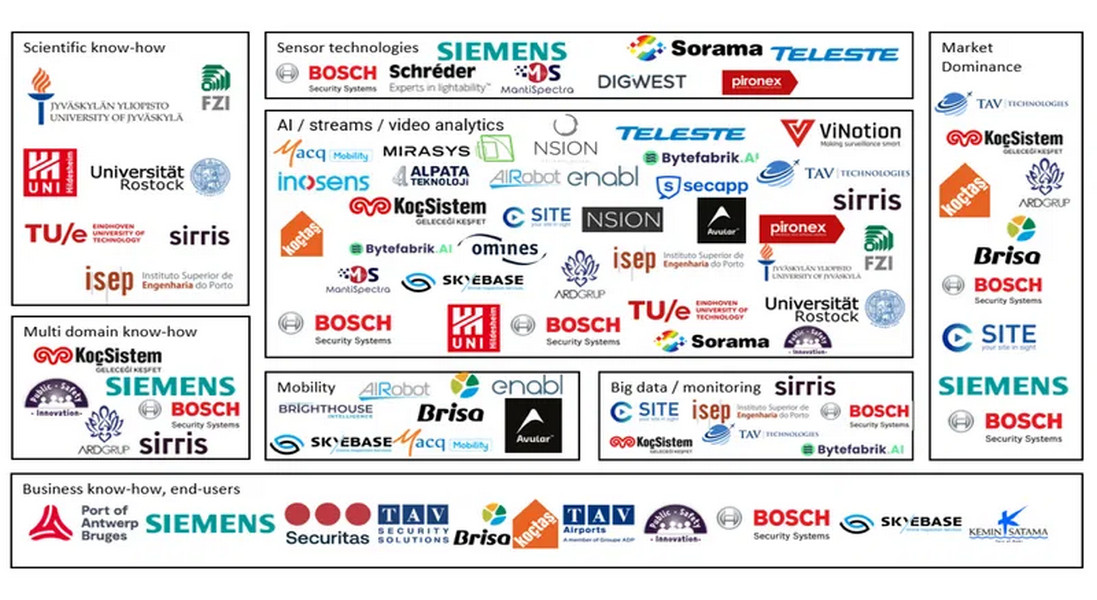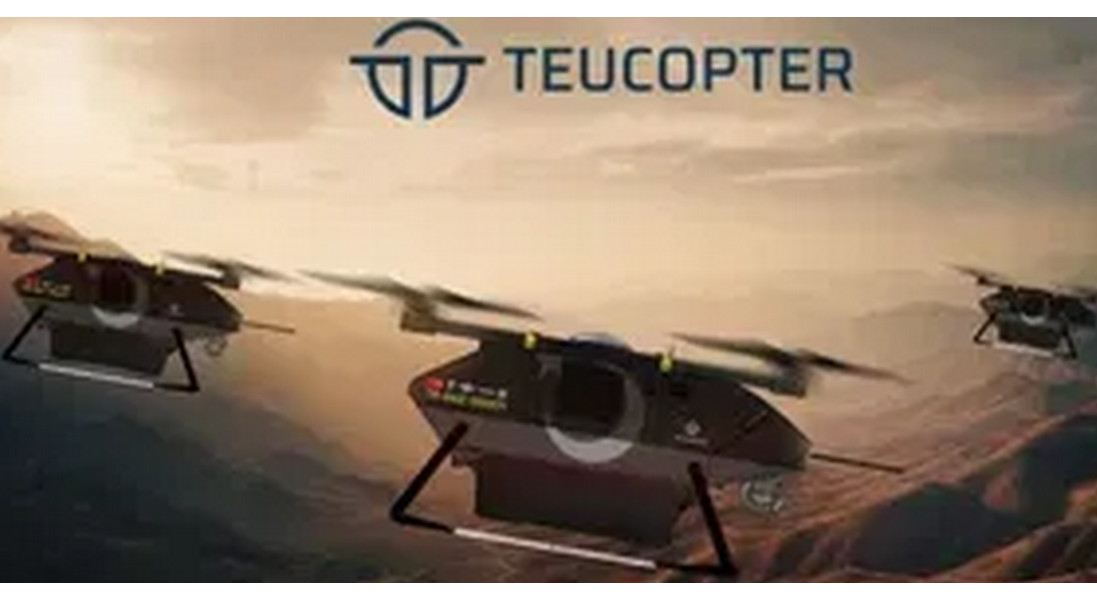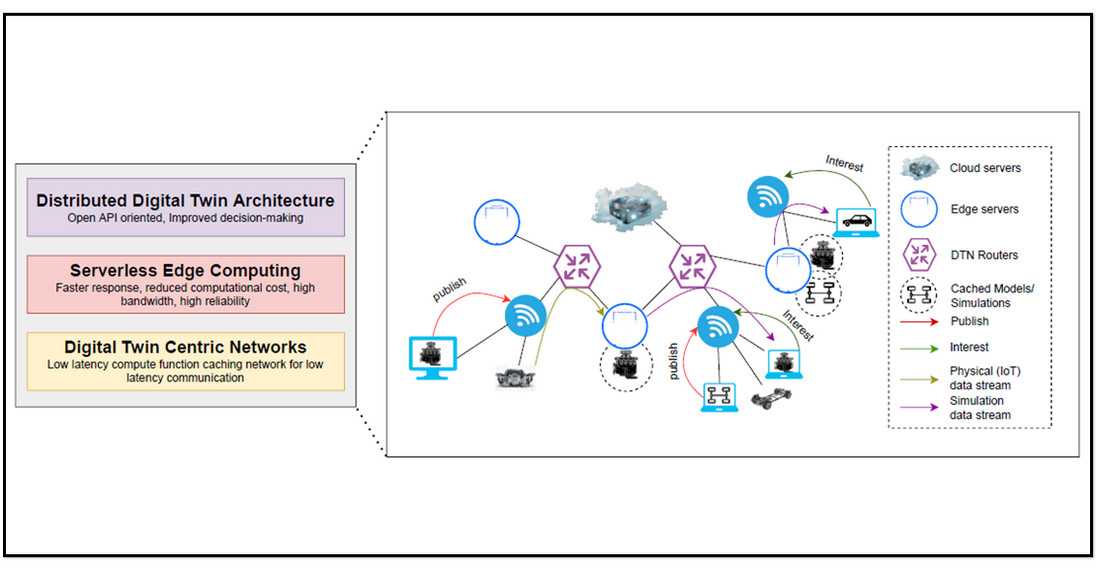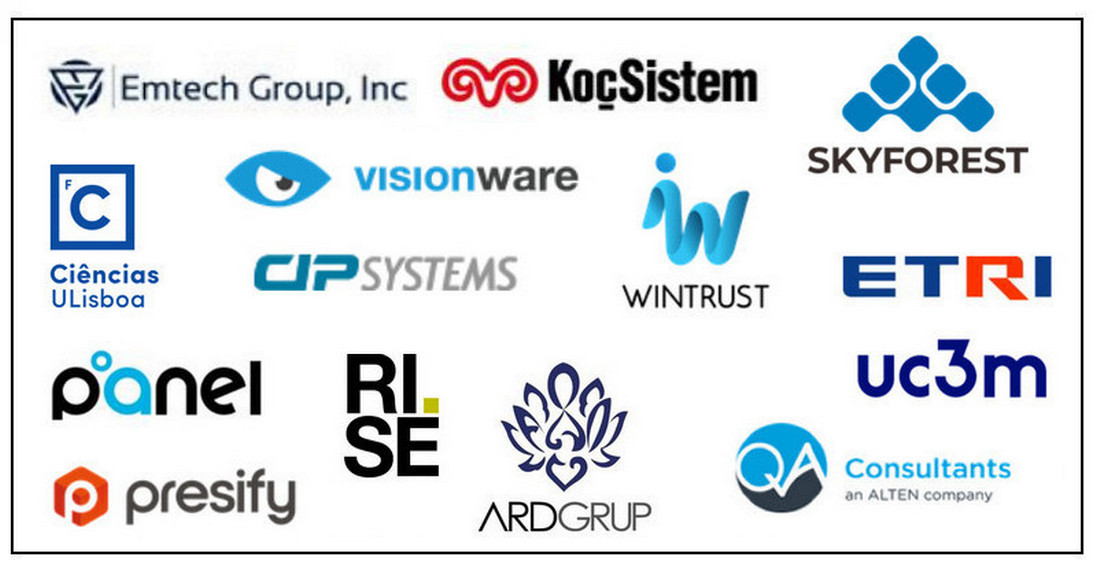Gazi University AI Center is a research and application institution that develops advanced artificial intelligence, machine learning and deep learning technologies. We strive to create innovative solutions to the most complex industry and research problems. Our goal is to lead the industry in artificial intelligence, machine learning and big data analytics.

Artificial intelligence theory encompasses the foundational concepts and methodologies for simulating human intelligence in machines, including machine learning, neural networks, natural language processing, and computer vision. We research and develop applications in a wide array of fields such as healthcare, where it aids in diagnostics and treatment planning; finance, for algorithmic trading and risk assessment; and autonomous systems.
Machine learning theory encompasses the mathematical foundations and principles that guide the development of algorithms capable of learning from data, including concepts like generalization, overfitting, and the bias-variance tradeoff. We study on machine learning span diverse fields such as natural language processing, computer vision, healthcare, finance, and autonomous systems, where it is used to make predictions, classify data, optimize processes, and generate insights from large datasets, leading to innovative solutions and enhanced decision-making.
Deep learning is a subset of machine learning that utilizes neural networks with many layers to model complex patterns in large datasets. The theory behind deep learning involves concepts from linear algebra, calculus, and statistics, which help optimize network training and improve generalization. We study on applications span various domains, including computer vision (e.g., image classification and object detection), natural language processing (e.g., language translation and sentiment analysis), healthcare (e.g., disease diagnosis through imaging), and autonomous systems (e.g., self-driving cars).
Intelligent systems theory encompasses the study of algorithms, models, and methodologies that enable machines to perform tasks requiring cognitive functions, such as learning, reasoning, and problem-solving. We study on applications of intelligent systems span various fields, including artificial intelligence, robotics, machine learning, natural language processing, and decision support systems. These systems can analyze vast amounts of data, automate processes, enhance human decision-making, and improve efficiencies across sectors like healthcare, finance, transportation, and manufacturing.
Big data analytics refers to the process of examining large and complex data sets to uncover hidden patterns, correlations, and insights that can drive decision-making in various fields. The theory behind big data analytics involves understanding statistical methods, machine learning algorithms, and data mining techniques to process and analyze vast amounts of data efficiently. We study on applications span numerous industries, including healthcare for predictive analytics in patient outcomes, retail for customer behavior analysis, finance for fraud detection, and urban planning for smart city initiatives.
Data science combines statistical analysis, machine learning, data mining, and big data technologies to extract insights and knowledge from structured and unstructured data. Theoretical foundations of data science include probability theory, statistics, linear algebra, and algorithms, which underpin techniques like regression analysis, clustering, and neural networks. We study on applications span various domains, such as finance for fraud detection, healthcare for predictive analytics, marketing for customer segmentation, and transportation for route optimization.

The retail sector plays a crucial role in a country's economy, but needs to undergo a transformation in order to be able to provide a seamless shopping experience, combining online and offline activities, that includes personal recommendations and the continuation of purchases initiated in one channel to the other. CAPE addresses these challenges by using various technologies such as AI, deep learning, blockchain, and IoT to develop personal experiences, improve the performance of robots/kiosks, and offer alternative opportunities and technologies not widely available in today’s market. The targeted impact includes improved customer and employee satisfaction, increased sales, and more efficient store operations.
Read More
Stakeholders of critical industrial and civil infrastructure, e.g., airports, power plants and road networks, frequently suffer from the disruptions caused by an overwhelming diversity of man-made physical safety and security threats ranging from well-organised crime activities to low-level but costly actions like vandalism. SINTRA aims to improve the resilience and protection of these critical infrastructures by developing an open data-streaming AI platform that enables interoperability, information sharing, and privacy protection. Using multi-modal sensing and AI-powered data analysis, it will provide a comprehensive view of the infrastructure’s safety and security and detect complex anomalies.
Read More
Argus Technology Inc. aims to develop a more intelligent, adaptive and user-friendly identity and access management system by using its competencies in artificial intelligence, informatics and cybersecurity. This will help the company gain a competitive advantage in both local and global markets and consolidate its leadership in the sector.

The aim of the project is to develop remotely controlled unmanned aerial vehicles designed for special purposes and capable of vertical or horizontal take-off and landing. The project output will be a multi-purpose drone aircraft with a hybrid power system that can perform autonomous vertical and horizontal take-off and landing. Sensors and actuators can be placed on the drone to be developed for different tasks such as mining, mapping, and spraying. In this way, very different studies such as mining, mapping, observation, and spraying can be carried out in very remote areas with high access costs. The product will be developed with superior features compared to other vehicles in the UAV-2 class.

Autononym ensures robust data privacy, fosters compliance and expands research scopes through AI-driven anonymization, enabling secure cross-sector data sharing, user transparency and global collaborations while maintaining data's inherent value. Designed for institutions such as the Ministry of Health that manage large amounts of user or citizen data, this platform ensures confidentiality by identifying and anonymizing personal data shared for research purposes. Autononym navigate the complex data landscape, maintaining research value while safeguarding individual identities, a crucial step in today's data-driven world fraught with confidentiality concerns.

In the scope of the project, in three urban areas, Mardin-(Csa), Eskişehir-(Bsk) and Sivas-(Dsb), which have been chosen based on climate classification in Turkey, annual mean temperature, annual mean temperature change, energy consumption and population data; (i)the local climate zone approach will be used to classify the characteristics of the urban built environment and topography, (ii)the relationship between LCZ, urban morphology, planning parameters and land surface temperatures in these cities with different and similar climate types will be revealed quantitatively, (iii)the effects of different planning and design strategies to decrease the UHI effect in these cities will be revealed through modeling. Data will be visualized with the software to be developed. The project will contribute to both national and international UHI literature, also it will contribute to the LCZ classification system with a theoretically and empirically original study.

Predis advanced anomaly detection capacity brings innovative methods to population health strategies. It reveals hidden patterns using various information, such as prescriptions, medication movements or disease data, alongside analysis based on geographic information systems (GIS). These approaches offer insights across various geographic scopes, from the national scale to the smallest unit. Predis empowers healthcare providers and authorities to improve healthcare outcomes for the entire population and a healthier future.

This project aims to utilize artificial intelligence techniques to enhance the indexing, archiving, and accessibility of video content. Targeting sectors like news agencies, TV channels, educational institutions, and security, it introduces innovations such as semantic search, relational search, similarity analysis, and multimodal analysis to modernize video archiving processes. This will enable faster and more efficient access to information, adding value to industries. The project will group videos by similarities, recognize sounds, objects, and people, and integrate visual, auditory, and text-based data for a comprehensive solution, offering significant improvements over traditional methods.

Bad weather conditions, low visibility, environmental factors or problems that may occur in the navigation system pose serious risks for vertical take-off/landing aircraft. When it is considered that such aircraft also land/take-off on mobile and narrow-space land and sea platforms, especially in military operations, the importance of the system to be developed becomes even more evident. In this context, the aim of the project is to develop an original landing area detection and evaluation system domestically with national resources in order to minimize the accidents that may occur during the landing/take-off of manned or unmanned aerial vehicles that make vertical take-off/landing in military and civil aviation and thus to prevent loss of life and property.

The project aims to revolutionise digital twin technology through IoDT2, an open framework that addresses scalability and collaboration challenges. By leveraging serverless edge computing and digital twin-centric networking, IoDT2 enables seamless sharing of distributed models and real-time responsiveness. This approach enhances interoperability, optimises performance, and simplifies digital twin creation, benefiting various industries and promoting widespread adoption.
Read More
The I2DT project aims to create an interoperability framework, methodology and tool support for constructing digital twins that can reflect complex systems with large-scale heterogeneous data and interactions. The project will address core technologies and application domains of interoperable digital twins and apply them to relevant areas like industrial production, smart cities, infrastructure asset management, wildfire protection and renewable energy resources. The project will also advance model-based development, integrate machine learning components, define a unified reference architecture and provide tool support for both engineering and operating digital twins.
Read More
Spread patterns of COVID-19 in European countries: Hybrid deep learning model for prediction and transmission analysis
Utku A., Akcayol M.A.
Neural Computing and Applications, DOI: 10.1007/s00521-024-09597-y, 2024.
An ensemble approach for classification of tympanic membrane conditions using soft voting classifier
Akyol K., Uçar E., Atila Ü., Uçar M.
Multimedia Tools and Applications, DOI: 10.1007/s11042-024-18631-z, 2024.
APT-scope: A novel framework to predict advanced persistent threat groups from enriched heterogeneous information network of cyber threat intelligence
Gulbay B., Demirci M.
Engineering Science and Technology, an International Journal, 57, 101791, 2024.
Real time malicious drone detection using deep learning on FANETs
Yapıcıoğlu C., Demirci M., Akcayol M.A.
IEEE International Black Sea Conference on Communications and Networking, Tbilisi, Georgia, June 24–27, 2024.
Optimization of planetary gearbox using nature inspired meta-heuristic optimizers
Top N., Dörterler M., Şahin İ.
Proceedings of the Institution of Mechanical Engineers, Part C: Journal of Mechanical Engineering Science, Vol. 238, No. 8, pp. 3338-3347, 2024.
Multimodal fusion for enhanced semantic segmentation in brain tumor imaging: Integrating deep learning and guided filtering via advanced 3d semantic segmentation architectures
Saleh A., Atila Ü., Menemencioğlu O.
International Journal of Imaging Systems and Technology, DOI: 10.1002/ima.23152, 2024.
A novel hybridization approach to improve the critical distance clustering algorithm: Balancing speed and quality
Hamed Kuwil F., Atila Ü.,
Expert Systems with Applications, vol.247, DOI: 10.1016/j.eswa.2024.123298, 2024.
A nested optimization approach for robot gripper multi-objective optimization problem
Dörterler M., Atila Ü., Top N., Şahin İ.
Expert Systems with Applications, vol.239, 1-15, DOI: 10.1016/j.eswa.2023.122163, 2024.
Smart meter-based energy consumption forecasting for smart cities using adaptive federated learning
Abdulla N., Demirci M., Ozdemir S.
Sustainable Energy, Grids and Networks, 38, 101342, 2024.
Neural network based a comparative analysis for customer churn prediction
Utku A., Akcayol M.A.
Muş Alparslan University Journal of Science, DOI: 10.18586/msufbd.1466246, 2024.
Hybrid ConvLSTM model for evaluating the performance of SMEs in the software sector
Utku A., Sevinç A., Akcayol M.A.
Naturengs, Vol.5(1), 2024.
Log anomaly detection in application servers using deep learning
Alagöz E., Şahin Y.M., Özdem K., Gedik A.O., Akcayol M.A.
Innovative Methods in Computer Science and Computational Applications in the Era of Industry 5.0, Vol.1(1), pp.258-268, 2024. (Selected from ICAIAME 2023)
Hybrid deep learning model for earthquake time prediction
Utku A., Akcayol M.A.
Gazi University Journal of Science, DOI: 10.35378/gujs.1364529, 2024.
EMACrawler: Web search engine database freshness optimization
Alanoğlu Z., Akcayol M.A.
Journal of Polytechnic, DOI: 10.2339/politeknik.1347054, 2024.
Analysis of cervical neoplasia with artificial intelligence
Zergeroğlu S., Sarı M.E., Taplamacıoğlu M.C., Alpay Ö., Akcayol M.A.
5th International Conference on Artificial Intelligence and Applied Mathematics in Engineering, Antalya, Türkiye, November 03-04, 2023.
RAIDS: robust autoencoder-based intrusion detection system model against adversarial attacks
Sarıkaya A., Kılıç B. G., Demirci M.
Computers & Security, 135, 103483, 2023.
A deep learning based offline optical character recognition model for printed Ottoman Turkish
Al-Khaffaf A., Atila Ü.
Technium: Romanian Journal of Applied Sciences and Technology, vol.18, 47-64. DOI: 10.47577/technium.v18i.10252, 2023.
A hybrid spam detection framework for social networks
Citlak O., Dörterler M., Doğru İ.A.
Journal of Polytechnic, Vol. 26, pp. 823-837, 2023.
Deep learning based classification for hoverflies (Diptera: Sryphidae)
Utku A., Ayaz Z., Çiftçi D., Akcayol M.A.
Journal of the Entomological Research Society, DOI 10.51963/jers.v25i3.2445, 2023.
Malicious firmware detection on embedded systems using deep learning
Yapıcıoğlu C., Okay F.Y., Demirci M.
IEEE 2023 Innovations in Intelligent Systems and Applications Conference (ASYU) (pp. 1-6), 2023.
Continuous knowledge graph refinement with confidence propagation
Huseynli A., Akcayol M.A.
IEEE Access, DOI: 10.1109/ACCESS.2023.3283925, 2023.
Examining knowledge extraction processes from heterogeneous data sources
Sarıkoz S.K., Akcayol M.A.
Journal of Brilliant Engineering, DOI: 10.36937/ben.2023.4798, 2023.
Forecasting the spread of COVID-19 using deep learning and big data analytics methods
Kiganda C., Akcayol M.A.
Springer Nature Computer Science, DOI: 10.1007/s42979-023-01801-5, 2023.
Deep convolutional neural network-the evaluation of cervical vertebrae maturation
Akay G., Akcayol M.A., Özdem K., Güngör K.
Oral Radiology, DOI: 10.1007/s11282-023-00678-7, 2023.
Effective seed URL selection and scope extension algorithm for web crawler
Alanoğlu Z., Akcayol M.A.
International Journal of Advances in Engineering and Pure Sciences, Vol.35(1), pp.27-38, 2023.
Deep learning based model for predicting the contribution of SMEs to the economy
Utku A., Sevinç A., Akcayol M.A.
Fırat University Journal of Engineering Science, Vol.35(2), pp.865-874, 2023.
Seed URL selection and performance analysis in Web crawlers: A comprehensive review
Alanoğlu Z., Akcayol M.A.
Duzce University Journal of Science and Technology, Vol.11(3), pp.1399-1423, 2023.
Deep learning based video event classification
Gençaslan S., Utku A., Akcayol M.A.
Journal of Polytechnic, Vol.26(3), pp.1155-1165, 2023.
Artificial intelligence and digital transformation in the light of new generation technologies
Editors: Yılmaz M., Akcayol M.A.
Authors: Kabukcu M., Özdem K., Ulusoy R., Akyol A., Öniz Y., Yüksel K., Sancak E., Utku A., Başkaya F., Karacan H., Alpay Ö.
Nobel Academic Publishing, ISBN: 978-625-417-991-4, August 2022.
Turkish lip-reading using Bi-LSTM and deep learning models
Atila Ü., Sabaz F.U.
Engineering Science and Technology, an International Journal, vol.35, DOI: 10.1016/j.jestch.2022.101206, 2022.
Design and evaluation of adaptive deep learning models for weather forecasting
Abdulla N., Demirci M., Ozdemir S.
Engineering Applications of Artificial Intelligence, 116, 105440, 2022.
A study of Turkish emotion classification with pretrained language models
Uçan A., Dörterler M., Akçapınar Sezer E.
Journal of Information Science, Vol. 48, No. 6, pp. 857-865, 2022.
The adaptation of gray wolf optimizer to data clustering
Tekerek A., Dörterler M.
Journal of Polytechnic, Vol. 25, No. 4, pp. 1761-1767, 2022.
Classification of different tympanic membrane conditions using fused deep hypercolumn features and bidirectional LSTM.
Ucar M., Akyol K., Atila Ü., Ucar E.
IRBM, vol.43, no.3, 187-197.DOI: 10.1016/j.irbm.2021.01.001, 2022.
Machine learning-based comparative study for heart disease prediction
Güllü M., Akcayol M.A., Barışçı N.
Advances in Artificial Intelligence Research, Vol.2(2), pp.51-58, 2022. (Selected from ICAIAME 2022)
Trust-chain-based certificate revocation control in autonomous vehicle networks
Erceylan G., Akcayol M.A.
IEEE 5th International Conference on Information and Communications Technology, Universitas AMIKOM Yogyakarta, Indonesia, August 24-25, 2022.
GRU-GBM: A combined intrusion detection model using LightGBM and gated recurrent unit
Sarıkaya A., Günel Kılıç B., Demirci M.
Expert Systems, 39(9), e13067, 2022.
SUST-DDD: A real-drive dataset for driver drowsiness detection
Yılmaz K.E., Akcayol M.A.
IEEE 31st Conference of the Open Innovations Association FRUCT, Helsinki, Finland, April 27-29, 2022.
Deep learning-based forecasting of cancellation, delay and orientation on flights
Ayaydın A., Akcayol M.A.
Journal of Informatics Technologies, Vol.15(3), pp.239-249, 2022. (Selected from ICI-CS2021)
A comprehensive review of image denoising with deep learning
Yapıcı A., Akcayol M.A.
International Journal of Advances in Engineering and Pure Sciences, Vol.34(1), pp.65-69, 2022.
A novel web ranking algorithm based on pages multi-attribute
Baker M.R., Akcayol M.A.
International Journal of Information Technology, DOI: 10.1007/s41870-021-00833-5, 2022.
Bird species classification using deep learning: a comparative study
Bilgin M.M., Özdem K., Akcayol M.A.
Journal of Polytechnic, Vol.25(3), pp.1251-1260, 2022.
Machine learning-based comparative study for heart disease prediction
Güllü M., Akcayol M.A., Barışçı N.
International Conference on Artificial Intelligence and Applied Mathematics in Engineering, Baku, Azerbaijan, May 20-22, 2022.
Thermal infrared colorization using deep learning
Çiftçi O., Akcayol M.A.
IEEE International Conference on Electrical and Electronics Engineering, Antalya, Turkey, April 9-11, 2021.
Automated detection of Covid-19 disease using deep fused features from chest radiography images.
Ucar E., Atila Ü., Ucar M., Akyol K.
Biomedical Signal Processing and Control, vol.69, DOI: 10.1016/j.bspc.2021.102862, 2021.
Locality sensitive hashing based clustering for large scale documents
Özdem K., Akcayol M.A.
ACM International Conference on Mathematics and Artificial Intelligence, Chengdu, China, March 19-21, 2021.
Plant leaf disease classification using EfficientNet deep learning model.
Atila Ü., Ucar M., Akyol K., Ucar E.
Ecological Informatics, vol.61, DOI: 10.1016/j.ecoinf.2020.101182, 2021.
A suggested testbed to evaluate multicast network and threat prevention performance of Next Generation Firewalls
Uçtu G., Alkan M., Doğru İ. A., Dörterler M.
Future Generation Computer Systems, Vol. 124, pp. 56-67, 2021.
An emotion analysis scheme based on Gray Wolf optimization and deep learning
Uçan A., Dörterler M., Akçapınar Sezer E.
Concurrency and Computation-Practice & Experience, Vol. 33, No. 13, 2021.
Analyzing the performances of evolutionary multi-objective optimizers on design optimization of robot gripper configurations
Dörterler M., Atila Ü., Durgut R., Şahin İ.
Turkish Journal of Electrical Engineering and Computer Sciences, Vol. 29, No. 1, pp. 349-369, 2021.
Long short-term memory based query auto-completion
Qureshi A.R.A., Akcayol M.A.
IEEE International Conference on Electrical and Electronics Engineering, Antalya, Turkey, April 9-11, 2021.
Bloom filter based graph database CRUD optimization for stream data
Hüseynli A., Akcayol M.A.
IEEE International Conference on Intelligent Data Acquisition and Advanced Computing Systems, Cracow, Poland, September 22-25, 2021.
A new deep learning-based prediction model for purchase time prediction
Utku A., Akcayol M.A.
IEEE International Conference on Computer Science and Engineering, Ankara, Turkey, September 15-19, 2021.
A review of image denoising with deep learning
Yapıcı A., Akcayol M.A.
IEEE International Informatics and Software Engineering Conference, Ankara, Turkey, December 16-17, 2021.
Automated machine learning platform
Selvi G., Dağ G., Dirican E.G., Aktay T., Aksu S.M., Özdem K., Akcayol M.A.
IEEE International Conference on Computer Science and Engineering, Ankara, Turkey, September 15-19, 2021.
Deep learning-based forecasting of cancellation, delay and orientation on flights
Ayaydın A., Akcayol M.A.
International Conference on Informatics and Computer Science (ICI-CS2021), Ankara, Turkey, December 9-11, 2021.
A new topic modeling based approach for aspect extraction in aspect based sentiment analysis: SS-LDA
Özyurt B., Akcayol M.A.
Expert Systems with Applications, Vol.168, 114231, April 2021.
Prediction of the next time of an event with deep learning based model
Utku A., Akcayol M.A.
Journal of Polytechnic, Vol.24(1), pp.1-15, 2021.
A model for prediction of customer behavior: a case study for banking sector
Özdem K., Akcayol M.A.
Niğde Ömer Halisdemir University Journal of Engineering Sciences, Vol.10(1), pp.1-8, 2021.
|
|
Gazi Üniversitesi Rektörlüğü |
|
aicenter@gazi.edu.tr Administration:+90 312 202 20 49-50 |
|
|
|||